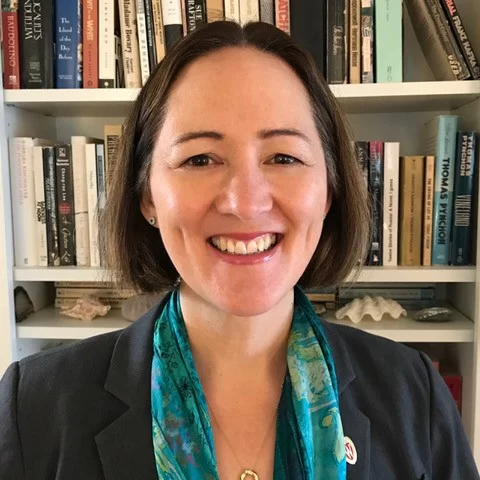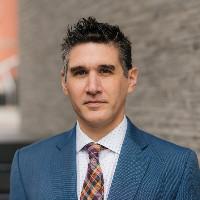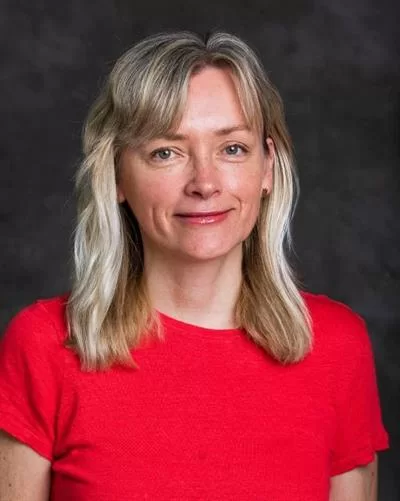Panelist Biographies for 2024 Russia and Ukraine Panel Discussion: Two Years On

Professor Yoshiko Herrera
A study abroad trip to Eastern Europe in 1990 ignited Yoshiko Herrera’s interest in Russian politics. She graduated from college following the end of the Cold War and has had her finger of the pulse of post-Soviet Russia ever since. Herrera, a political science professor at the University of Wisconsin, has written extensively on U.S.-Russian relations, nationalism and xenophobia, and international politics.
Professor Herrera is a former director of the UW’s Center for Russia, East Europe, and Central Asia (CREECA), former codirector of the Institute for Regional and International Studies, and former director of the UW–Madison Partnership with Nazarbayev University in Kazakhstan.
Her research has included detailed work on Russian politics; nationalism, identity, and ethnic politics; political economy and state statistics; and international norms. Her books Imagined Economies: The Sources of Russian Regionalism and Measuring Identity: A Guide for Social Scientists (Co-edited with Rawi Abdelal, Alastair Iain Johnston, and Rose McDermott) have been published by Cambridge University Press, and her book Mirrors of the Economy: National Accounts and International Norms in Russia and Beyond was published with Cornell University Press in 2010. She has published articles in Perspectives on Politics, Comparative Politics, Political Analysis, Social Science Quarterly, Post-Soviet Affairs, and other news outlets.
Professor Herrera holds a PhD from the University of Chicago, and an AB in Government from Dartmouth College. She previously taught in the Department of Government at Harvard University for eight years, and has been at the University of Wisconsin since 2007.

Professor Jason Lyall
Jason Lyall is the inaugural James Wright Chair of Transnational Studies and Associate Professor in the Government department at Dartmouth College. He also directs the Political Violence FieldLab at the John Sloan Dickey Center for International Understanding. His research examines the effects and effectiveness of political violence in civil and conventional wars. He has written extensively on the Russian Army’s experience in Chechnya and the Soviet Army during World War 2.
Jason has conducted field research in Russia, Afghanistan, and Qatar, and his research has been published in the American Political Science Review, American Journal of Political Science, Foreign Affairs, International Organization, International Studies Quarterly, Journal of Conflict Resolution, Journal of Peace Research, Journal of Politics, Journal of the Royal Statistical Society (Series B), and World Politics, among others.
His recent book Divided Armies: Inequality and Battlefield Performance in Modern War, was published by Princeton University Press in 2020. It received the 2021 APSA Conflict Processes Section Best Book Award for “the book making the most outstanding contributions to the study of any and all forms of political conflict…published in the past two calendar years;” the 2021 Peter Katzenstein Prize for “best first book in international relations, comparative politics or political economy;” the 2020 Joseph Lepgold Prize for “best book in international relations;” the 2020 Edgar S. Furniss Book Award “to an author whose first book makes an exceptional contribution to the study of national and international security;” and was named a “Best of 2020 Book” by Foreign Affairs.
Professor Lyall holds a PhD in Government from Cornell University, and a BA in History and Political Science from Simon Fraser University in Vancouver, Canada.

Professor Oxana Shevel
Oxana Shevel is an Associate Professor of comparative politics in the Department of Political Science at Tufts University and Director of Tufts’ International Relations program. Her research and teaching focuses on the post-Soviet region, especially Ukraine and Russia, and issues such as nation building and identity politics, citizenship policies, memory politics, church-state relations, and democratization process in the post-Soviet region.
She is a co-author (with Maria Popova) of Russia and Ukraine: Entangled Histories, Diverging States (Polity, 2023), a book on the root causes of the Russo-Ukrainian war. Her earlier book, Migration, Refugee Policy, and State Building in Postcommunist Europe (Cambridge, 2011) examines how the politics of national identity and strategies of the UNHCR shape refugee admission policies in the post-Communist region, leading countries to be more or less receptive to refugees, and won the American Association of Ukrainian Studies (AAUS) prize for best book in the fields of Ukrainian history, politics, language, literature and culture.
Professor Shevel’s research has appeared in a variety of journals, including Comparative Politics, Current History, East European Politics and Societies, Europe-Asia Studies, Geopolitics, Journal of Democracy, Nationality Papers, Post-Soviet Affairs, Slavic Review and in edited volumes. Her policy commentary has appeared in Foreign Affairs, Foreign Policy, Just Security, Los Angeles Times, the Washington Post, and in other national and international media outlets.
Professor Shevel holds a PhD in Government from Harvard University, an M.Phil in International Relations from the University of Cambridge in England, and a BA in English and French from Kyiv State University in Ukraine.